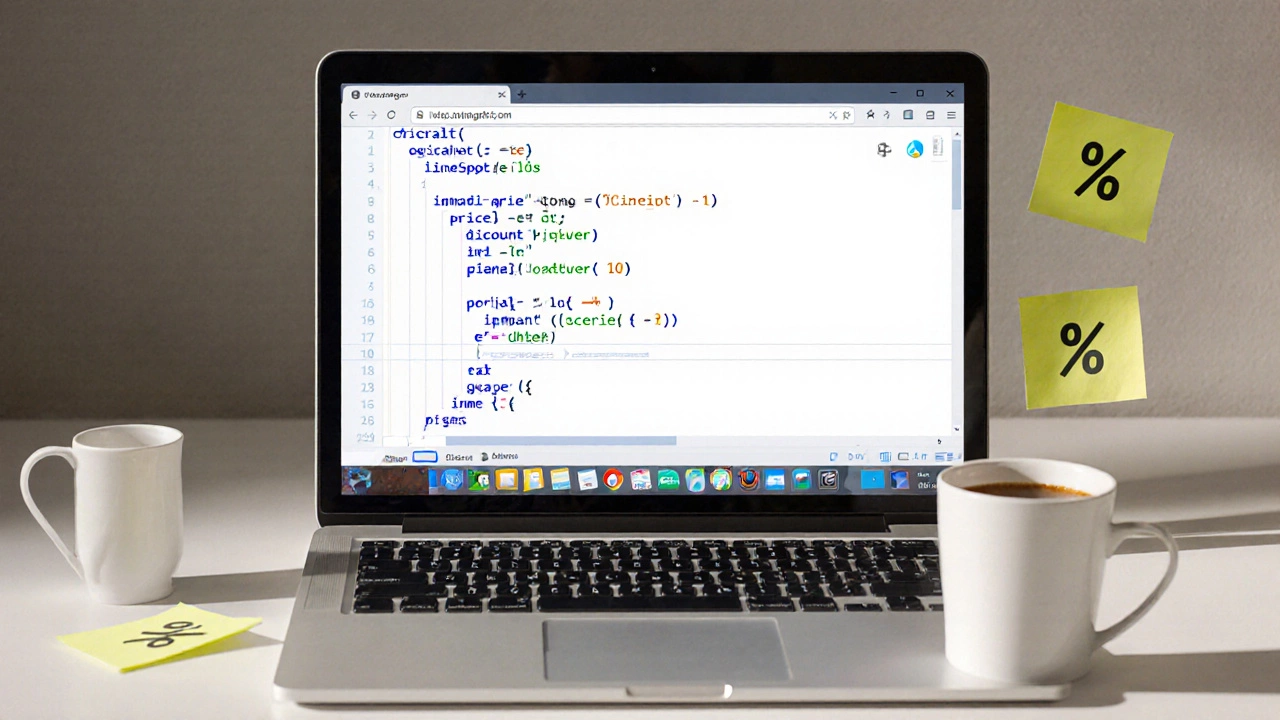
Is 3 Months Enough to Learn JavaScript?
7 Feb 2026Three months is enough to build real JavaScript skills-not mastery, but enough to create functional web apps, solve problems, and keep growing. Consistency beats intensity.
If you’re staring at a blank screen wondering where to begin, you’re not alone. JavaScript feels scary at first, but the basics are easy enough to pick up in a weekend. The key is to stop overthinking and start writing tiny bits of code that actually do something.
Grab a free editor like VS Code, open a new file, and type console.log('Hello, world!');. Save the file as intro.js and run it with Node or open it in a browser. You should see “Hello, world!” printed out. That one line shows three things: you can write code, you can run it, and you can see the result. That’s the whole loop you’ll repeat over and over.
Don’t try to learn every feature at once. Focus on four core ideas first:
let, const).Once you’re comfortable with those, move on to arrays, objects, and async patterns. This step‑by‑step method keeps the learning curve smooth and gives you something to show for every week.
There are tons of tutorials out there, but a few stand out for beginners:
Pick one and stick with it for at least two weeks. Jumping between sites too quickly can leave you confused.
Practice matters more than reading. After each new concept, write a tiny project: a countdown timer, a to‑do list, or a simple calculator. These projects force you to combine what you’ve learned and highlight gaps in your understanding.
When you hit a snag, search the exact error message. The JavaScript community is huge, and chances are someone else has solved the same problem. Stack Overflow, Reddit’s r/learnjavascript, and the MDN comment sections are gold mines for quick fixes.
Don’t forget to use the browser’s developer tools. Open Chrome’s DevTools, go to the Console tab, and experiment live. Changing a variable’s value or calling a function on the fly shows you how code behaves in real time.
As you get comfortable, start reading other people’s code. GitHub hosts countless open‑source projects. Look at a small library, see how functions are organized, and try to add a tiny feature. This habit builds intuition about code structure and naming conventions.
Finally, set a tiny habit: write at least one line of JavaScript every day. Consistency beats marathon sessions. Over a month you’ll accumulate a decent codebase, and the confidence to tackle bigger challenges will follow.
Remember, learning JavaScript isn’t a race. It’s a series of small wins that add up. Start with “Hello, world!”, follow the simple roadmap, use the free resources, and keep coding daily. Before you know it, you’ll be turning ideas into interactive web experiences without the overwhelm.

Three months is enough to build real JavaScript skills-not mastery, but enough to create functional web apps, solve problems, and keep growing. Consistency beats intensity.

It's never too late to learn JavaScript in 2026. Whether you're changing careers or just curious, JavaScript skills open doors to remote jobs, freelance work, and digital opportunities-with no degree required.

Learn how long it realistically takes to become proficient in JavaScript-from beginner to job-ready. No hype, just a clear timeline based on real-world progress and consistent practice.

JavaScript isn't magic-it's learnable. This guide shows beginners how to start small, avoid common traps, and build real projects without getting overwhelmed. No fluff, just what works.

You don't need advanced math to learn JavaScript. Most web development uses basic arithmetic and built-in functions. Learn what you actually need - not what you think you should.

Curious if you can learn JavaScript in just 2 months? This guide uncovers what to expect, practical tips, and pitfalls to avoid on your coding journey.

JavaScript continues to be a powerhouse in web development, making it a valuable skill in 2024. With its versatility across various environments and applications, learning JavaScript offers significant career benefits. From powering dynamic websites to expanding into mobile and desktop app development, it remains a key language for budding programmers. This article explores the relevance of JavaScript today, its diverse uses, and tips for effective learning.

JavaScript is an essential skill for web developers, but many wonder if it's possible to learn it thoroughly in just one year. This article explores the feasibility of mastering JavaScript within a twelve-month timeframe, considering factors like learning pace, resources available, and individual dedication. It provides valuable insights for beginners seeking to embark on their programming journey. In a world dominated by technology, understanding the timeframe needed to achieve proficiency in such a pivotal language can guide learners in setting realistic goals.

JavaScript remains a crucial programming language in 2024 due to its versatility, efficiency, and dominance in web development. Its continuous evolution and extensive community support make it an indispensable tool for developers. As technology advances, mastering JavaScript can unlock numerous opportunities ranging from mobile apps to AI projects. With browser updates enhancing its capabilities, learning JavaScript today equips you with skills essential for cutting-edge software development.